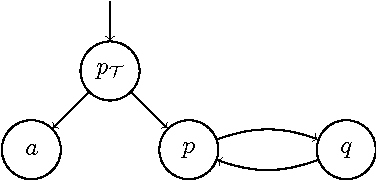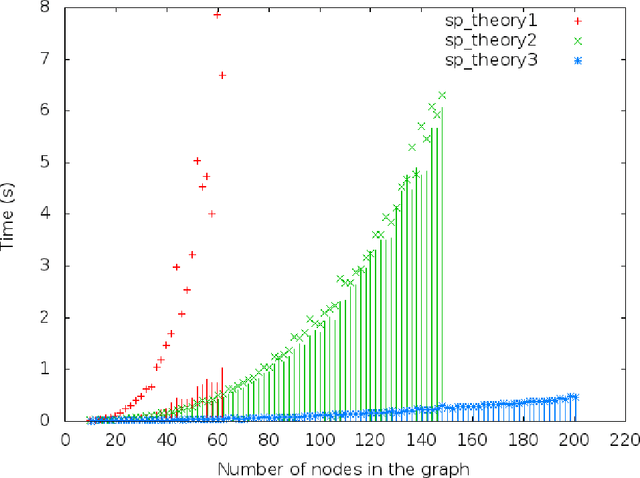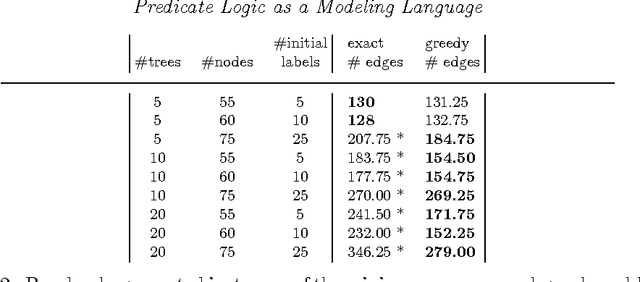Joachim Jansen
Implementing a Relevance Tracker Module
Aug 19, 2016

Abstract:PC(ID) extends propositional logic with inductive definitions: rule sets under the well-founded semantics. Recently, a notion of relevance was introduced for this language. This notion determines the set of undecided literals that can still influence the satisfiability of a PC(ID) formula in a given partial assignment. The idea is that the PC(ID) solver can make decisions only on relevant literals without losing soundness and thus safely ignore irrelevant literals. One important insight that the relevance of a literal is completely determined by the current solver state. During search, the solver state changes have an effect on the relevance of literals. In this paper, we discuss an incremental, lightweight implementation of a relevance tracker module that can be added to and interact with an out-of-the-box SAT(ID) solver.
Model revision inference for extensions of first order logic
May 16, 2014Abstract:I am Joachim Jansen and this is my research summary, part of my application to the Doctoral Consortium at ICLP'14. I am a PhD student in the Knowledge Representation and Reasoning (KRR) research group, a subgroup of the Declarative Languages and Artificial Intelligence (DTAI) group at the department of Computer Science at KU Leuven. I started my PhD in September 2012. My promotor is prof. dr. ir. Gerda Janssens and my co-promotor is prof. dr. Marc Denecker. I can be contacted at joachim.jansen@cs.kuleuven.be or at: Room 01.167 Celestijnenlaan 200A 3001 Heverlee Belgium An extended abstract / full version of a paper accepted to be presented at the Doctoral Consortium of the 30th International Conference on Logic Programming (ICLP 2014), July 19-22, Vienna, Austria
Predicate Logic as a Modeling Language: Modeling and Solving some Machine Learning and Data Mining Problems with IDP3
Mar 28, 2014



Abstract:This paper provides a gentle introduction to problem solving with the IDP3 system. The core of IDP3 is a finite model generator that supports first order logic enriched with types, inductive definitions, aggregates and partial functions. It offers its users a modeling language that is a slight extension of predicate logic and allows them to solve a wide range of search problems. Apart from a small introductory example, applications are selected from problems that arose within machine learning and data mining research. These research areas have recently shown a strong interest in declarative modeling and constraint solving as opposed to algorithmic approaches. The paper illustrates that the IDP3 system can be a valuable tool for researchers with such an interest. The first problem is in the domain of stemmatology, a domain of philology concerned with the relationship between surviving variant versions of text. The second problem is about a somewhat related problem within biology where phylogenetic trees are used to represent the evolution of species. The third and final problem concerns the classical problem of learning a minimal automaton consistent with a given set of strings. For this last problem, we show that the performance of our solution comes very close to that of a state-of-the art solution. For each of these applications, we analyze the problem, illustrate the development of a logic-based model and explore how alternatives can affect the performance.
* To appear in Theory and Practice of Logic Programming (TPLP)
 Add to Chrome
Add to Chrome Add to Firefox
Add to Firefox Add to Edge
Add to Edge